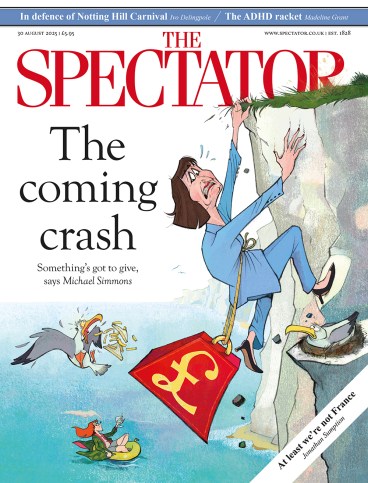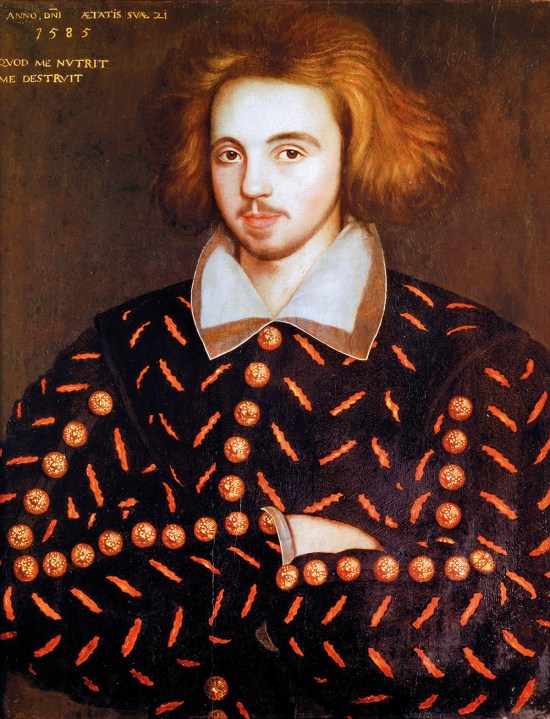
Stephen Greenblatt tells the story of being approached in the 1990s by a screenwriter who wanted to make a Shakespeare -biopic. Greenblatt repeatedly told him to forget Shakespeare and look instead at his predecessor Christopher Marlowe. The screenwriter knew what he was about and ignored Greenblatt’s advice – the result was Shakespeare in Love. The fact of the matter is that Marlowe’s life is the sort of thing that people assume would make a good film but in reality it was just too full of violence, passion and secret plots. By the time he was murdered at the age of 29 in 1593, Marlowe was enmeshed in far too much for a mere drama to set out.
Biographies haven’t been lacking, many of them excellent. The allure is clear. Two of the most important strands of Marlowe’s short life are, from necessity, almost completely undocumented. He was certainly a spy, employed by Francis Walsingham to pose as a secret Roman Catholic in order to gather information about treasonous conspiracies in England and on the Continent. We can deduce this from Marlowe’s travels, his connections and from some favours asked by powerful people on his behalf. As a student at Cambridge, his absences should have disqualified him from being awarded an MA. A letter from the Privy Council, which survives, instructs the university that Marlowe had ‘done her Majesty good service and deserved to be rewarded for faithful dealing’. Such a letter, signed by the Lord Chancellor, the Lord Treasurer, the Lord Chamberlain, the Master Comptroller and the Archbishop of Canterbury, makes it clear that Marlowe had done something useful – in this case inserted himself into the English College in Rheims and supplied valuable information about foreign plots.
His engagement with the shadow world of spying probably continued to the end. A gripping book by Charles Nicholl, The Reckoning (1992), establishes a very plausible narrative of the murder, noting that the three men whom Marlowe met in Deptford had also worked as spies. Marlowe’s death was almost certainly an extrajudicial killing dressed up as an argument over a bar bill. Shakespeare alludes to it as ‘a reckoning in a little room’. Nicholl thinks the Earl of Essex gave the order. Greenblatt suggests that it came from the Queen herself, which seems unlikely in the extreme – Gloriana had no need to work up an elaborate conspiracy to bring about Marlowe’s end.
His life as a spy is one hidden thread. The other, which goes well beyond prurient biographical gossip into a real narrative of power and cunning manipulation, is Marlowe’s likely exploitation of his own sexual magnetism. He came from an extremely humble background. Having got into a good school, the boy was soon adopted and greatly helped by the headmaster himself, John Gresshop. When surprisingly ambitious connections are made at Cambridge, questions arise. After the beginning of his spying career, Marlowe slid with unusual ease into writing plays for a very impressive playhouse, supported by powerful patrons such as the Earl of Oxford, perhaps via another pupil of Gresshop’s, the flamboyantly posturing literary stylist John Lyly. We can deduce from Marlowe’s play Edward II and some extravagant passages in his poem ‘Hero and Leander’ that he was alive to the sexual possibilities between men – a subject touched on by Shakespeare and the sonnet writer Richard Barnfield. Was it just charm, wit and intelligence that smoothed Marlowe’s path? Or was there something that everyone knew at the time but that nobody would ever write down?
Marlowe’s death was almost certainly an extrajudicial killing dressed up as an argument over a bar bill
Certainly Marlowe changed literature for ever. There are four major plays – Tamburlaine (in two parts), The Jew of Malta, –Doctor Faustus and Edward II. In them, he made everything that follows possible. He was the first playwright to use blank verse, the iambic pentameter that is so close to the natural rhythms of English speech yet enables possibilities of high lyric polish. And he was the first to introduce the soliloquy. His discoveries of subjects would haunt literature for ever – the Faust story, of course, and that inexhaustible lyric ‘Come live with me and be my love’; but also the massive stage spectacular of the two Tamburlaine plays with which he took London by storm. Edward II, though long neglected, has in recent decades become a play of considerable contemporary relevance.
They retain their immense power in performance. Who knows how the first audience took The Jew of Malta, or what Marlowe intended. But when Barabas enters, having just poisoned an entire convent, including his converted daughter Abigail, and says ‘How sweetly the bells ring, now the nuns are dead’, it would be a dull performer who didn’t find he’d brought the house down for a good three minutes.
More seriously, Marlowe demonstrated with finality how, on the barely furnished stage of his day, the grandest spectacle could be contrived with a few words – Christ’s blood streaming in the firmament, with not a drop to save Faust from hell. Or the magnificent moment when Faust asks Mephistopheles how, being damned, he is on Earth and not in hell, and Mephistopheles says: ‘Why, this is hell, nor am I out of it.’ It terrified Marlowe’s first audiences. In one production (not a provincial production, as Greenblatt says, but one at the Bell Savage Inn on Ludgate Hill), the players found to their terror that there was one devil too many on stage with them. ‘Contrary to their custom,’ the actors spent the night praying. Marlowe is the only writer that Shakespeare directly quotes, with acknowledgement.
This is a good, solid and well-informed biography. Greenblatt has an excellent sense of what came before Marlowe, and the impact he made on those who followed. (I would love to read a biography by Greenblatt of that most fascinating of -playwrights Ben Jonson.) He clarifies something of great interest: the exact difference between Marlowe, who continued in a world where the approval and support of patrons was required, and Shakespeare, who found a way to make money from paying customers.
Greenblatt also vividly evokes the London of the time – how it would have struck visitors from the more advanced parts of Europe and the occasional outbursts of extravagant splendour, such as Walter Raleigh’s lavish domestic interiors. At times he appears to suffer from the biographer’s itch to identify fictional characters with real people in the subject’s life. I just don’t believe that the fascination with magic and control in Faustus tells us anything, in general or particular, about Marlowe’s rich and demanding patrons. The necromancer John Dee might have contributed some things to Faust, but I doubt if Raleigh or Henry Percy would have been recognised in Faust’s progress.
Nevertheless, Dark Renaissance is readable and trustworthy, and convincingly suggests that Marlowe, almost alone among his contemporaries, speaks to us as one of us. Edmund Spenser is gaudy and irresistibly fascinating but quite alien; Shakespeare, for all his frequent flashes of the recognisable, has, we increasingly feel, a quite unfamiliar view of the world; Jonson is magnificent, but must be worked at. Perhaps only Marlowe, with his joyous, blasphemous jeering, his dedication to friendship and useful social connections, his placing of physical pleasure and overindulgence above almost everything, is someone it is possible to imagine spending time with. That may well be a delusion – but an unusually pleasant one when encountering an author at work so long ago, in such a very different a world.








Comments